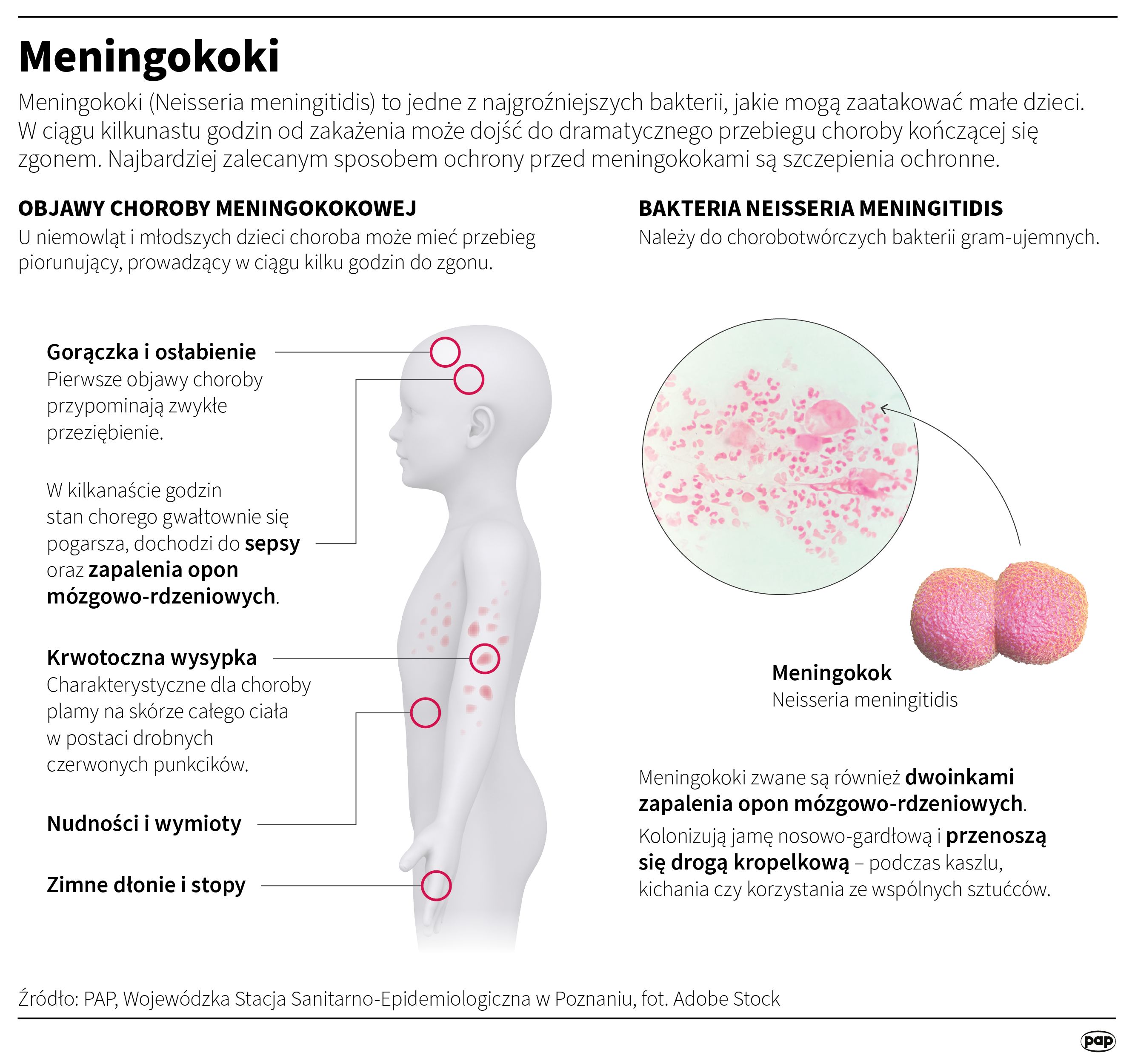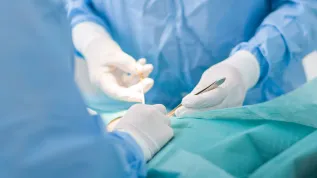Epidemiologist: meningococcal disease can kill in a dozen or so hours

04/09/2025 update: 04/09/2025
2 minutes of reading
Invasive meningococcal disease is one of the most dangerous bacterial infections in humans. It develops rapidly, and in the most severe cases, the mortality rate reaches 50 percent, reminds pediatrician and epidemiologist Prof. Aneta Nitsch Osuch. Experts recommend vaccination.
Vaccinations protect against the dramatic course of the disease. Meningococci, or Neisseria meningitidis bacteria, are transmitted through droplets – during coughing, sneezing, or even sharing cutlery. A carrier can be a sick person, but also a seemingly healthy child.

As Professor Aneta Nitsch Osuch pointed out, the first symptoms of the disease – fever, sore throat, headaches or weakness – may resemble a common infection.
However, within a few hours, or at most a dozen or so, the patient's condition deteriorates rapidly. Sepsis and meningitis develop, and a characteristic late symptom is a hemorrhagic rash that does not blanch under pressure in the so-called glass test.
"Parents often have an intuition that their child is sicker than usual. Such a dramatic change in well-being should immediately raise alarm," emphasized Professor Nitsch Osuch.
She explained that even with prompt diagnosis and treatment with antibiotics, one-third of patients experience permanent complications, including developmental disorders, organ failure, and the need for limb amputation.
Several hundred cases are recorded in Poland each year, but experts point out that some of the causes of death may remain undiagnosed.
In many Western European countries, meningococcal vaccination is mandatory. In Poland, it is a recommended vaccination and costs approximately 200 PLN per dose. It can be administered to children from eight weeks of age.
Mira Suchodolska (PAP)
mir/ joz/ amac/
The PAP Foundation permits free reprinting of articles from the Nauka w Polsce website, provided that you notify us by email once a month of your use of the website and cite the source of the article. On portals and websites, please include the linked address: Source: naukawpolsce.pl, and in journals, please include the annotation: Source: Nauka w Polsce website - naukawpolsce.pl. This permission does not apply to information in the "World" category or any photographs or video materials.
Before adding a comment, please read the Forum Rules of the Nauka w Polsce website.
Dear Reader, In accordance with the Regulation (EU) of the European Parliament and of the Council of 27 April 2016 on the protection of natural persons with regard to the processing of personal data and on the free movement of such data, and repealing Directive 95/46/EC (General Data Protection Regulation), we hereby inform you about the processing of your data. The data controller is the PAP Foundation, with its registered office in Warsaw at ul. Bracka 6/8, 00-502 Warsaw. This data is collected as part of your use of our services, including websites, services, and other functionalities provided by the PAP Foundation, primarily stored in cookies and other online identifiers installed on our websites by us and our trusted partners of the PAP Foundation. The collected data is used solely for the following purposes: • providing services electronically • detecting abuse of services
• statistical measurements and service improvement
The legal basis for data processing is the provision and improvement of the service, as well as ensuring security, which constitutes the legitimate interest of the controller. At the request of the controller, data may be shared with entities authorized to obtain data under applicable law. The data subject has the right to access, rectify, and erase the data, and to restrict its processing. The data subject may also withdraw consent to the processing of personal data.
Please send all notifications regarding personal data protection to [email protected] or in writing to the PAP Foundation, ul. Bracka 6/8, 00-502 Warsaw, with the note "personal data protection"
More information about the processing of personal data and your rights can be found in the Privacy Policy. Learn more. I consent
naukawpolsce.pl







